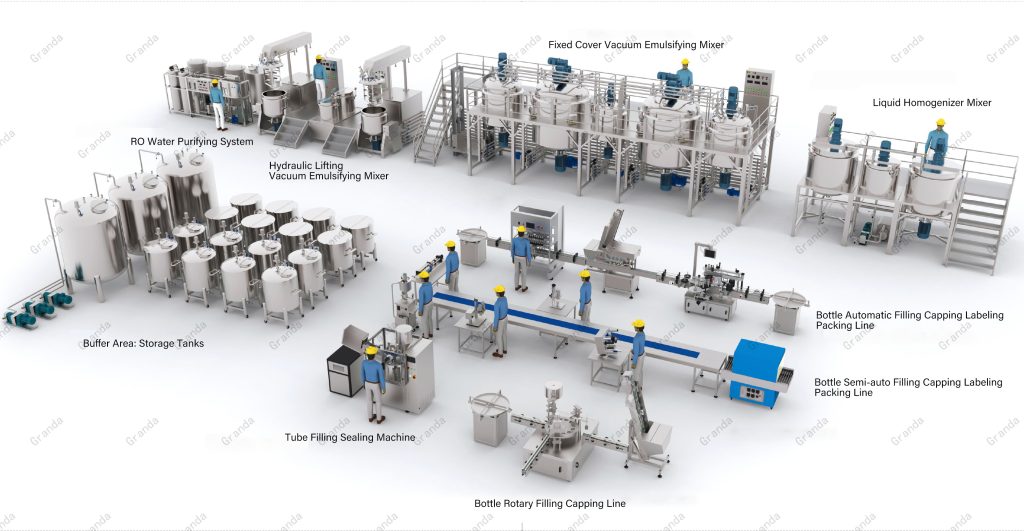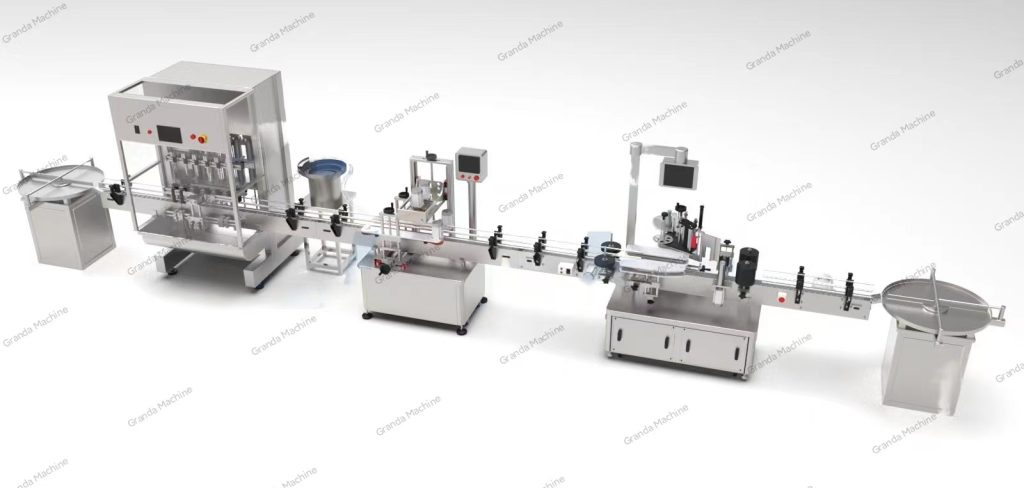Introduction
In the highly competitive cosmetic industry, the quality of cosmetic products is of utmost importance. One of the key factors that significantly influence product quality is the use of high – quality cosmetic machinery. This article will explore how machines like emulsifiers, filling, capping and labeling machines, and water treatment systems play a crucial role in ensuring the excellence of cosmetic products.
Emulsifiers: The Heart of Cosmetic Formulation
An emulsifier, or an emulsifying machine, is a fundamental piece of equipment in the cosmetic manufacturing process. Cosmetics often consist of mixtures of immiscible substances, such as oil and water. The emulsifier’s job is to create a stable emulsion, where tiny droplets of one liquid are dispersed evenly throughout the other.
In the cosmetic industry (cosmetic industry), a well – functioning emulsifier (cosmetic emulsifier) can ensure that the texture, consistency, and stability of the final product are perfect. For example, in the production of creams and lotions, a high – quality emulsifier can create a smooth and creamy texture that is easy to apply on the skin. It also helps in preventing phase separation, which can lead to an unappealing and ineffective product.
Filling, Capping and Labeling Machines: Precision and Presentation
Filling, capping, and labeling machines (filling, capping and labeling machines for cosmetics) are essential for the packaging stage of cosmetic production. Precision in filling is crucial. Over – filling or under – filling can not only affect the product’s quantity but also its overall value. A reliable filling machine ensures that each container receives the exact amount of product, maintaining consistency across all units.
Capping machines then securely seal the containers, preventing leakage and preserving the product’s integrity. In the case of cosmetics, a proper cap is also important for consumer convenience. For instance, a well – designed cap on a lipstick or a bottle of perfume can enhance the user experience.
Labeling machines complete the packaging process by adding essential information such as product name, ingredients, usage instructions, and branding. In the highly visual cosmetic market, an accurate and attractive label can significantly impact a product’s marketability.
Water Treatment Systems: The Foundation of Pure Cosmetics
Water is a common ingredient in many cosmetic products. However, untreated water can contain impurities such as minerals, bacteria, and chemicals that can harm the quality of the cosmetics. A water treatment system (cosmetic water treatment system) is used to purify the water before it is incorporated into the product.
By removing these impurities, the water treatment system ensures that the cosmetic products are safe for use. It also helps in maintaining the stability and shelf – life of the products. For example, in the production of facial toners or shampoos, using purified water can prevent the growth of bacteria and extend the product’s usability.
Conclusion
In conclusion, high – quality cosmetic machinery, including emulsifiers, filling, capping and labeling machines, and water treatment systems, is indispensable for the production of top – notch cosmetic products. These machines work in harmony to ensure that the final products meet the high standards of quality, safety, and presentation expected by consumers in the cosmetic market.


